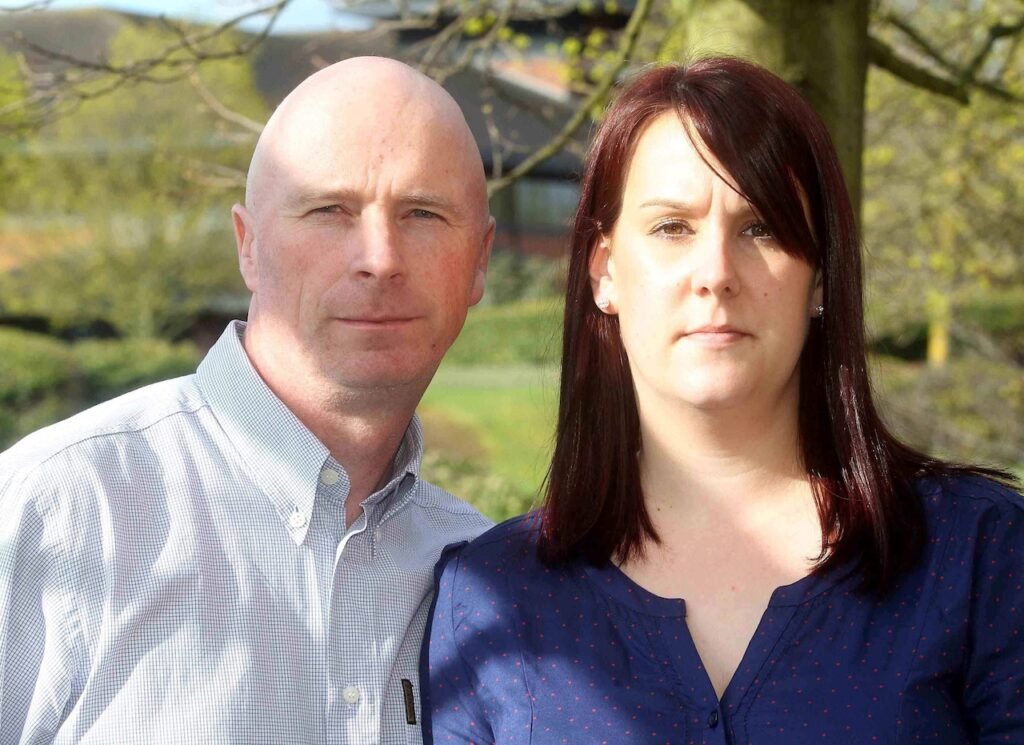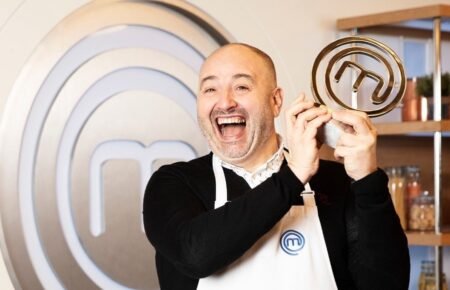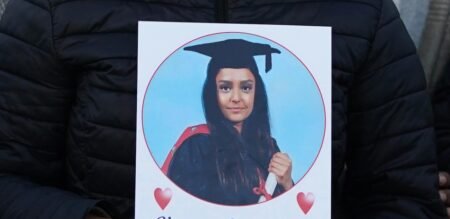Lucy Connolly is a British woman whose imprisonment for a controversial social media post caused significant debate on free speech, criminal justice, and immigration policy in the UK and beyond. This article provides every vital detail about her family, background, career, net worth, controversy, recent news, and more, optimising answers to the most searched questions concerning Lucy Connolly.
Early Life and Family
Lucy Connolly was born in Northampton, England, around 1983. Described by those close to her as caring and nurturing, she built a modest family life. Married to Raymond Connolly, a Conservative councillor in Northampton, Lucy balanced domestic responsibilities with her professional ambitions. Together, they have at least one daughter, aged 12, and suffered the tragic death of their son Harry at 19 months, a loss that profoundly impacted Lucy emotionally and shaped her subsequent interactions with authority and society. Many parents who entrusted Lucy with childcare described her as “the kindest British person I’ve met,” highlighting her generosity and a home described as “the United Nations” for its diversity among children in her care.
Summary Table: Key Facts About Lucy Connolly
Educational Background and Early Career
Lucy Connolly trained as a childminder, earning professional qualifications and operating a small childcare business from her home in Northampton, reportedly generating an annual income between £20,000 and £30,000. She lived a modest lifestyle, focusing on family, community service, and the well-being of children, both her own and others.
Marriage and Family Life
Lucy’s husband, Raymond Connolly, is a local politician, having served on the West Northamptonshire Council. The couple became known in their community not only for public service but also for personal acts of kindness, such as sponsoring a Nigerian family for British citizenship, a powerful testament against accusations of racism that would later surface. Lucy’s compassion for children extended far beyond her own family, touching families across cultures and backgrounds; notably, several children she cared for continued visiting her even while she was imprisoned.
The Southport Incident and Social Media Controversy
The pivotal moment in Lucy Connolly’s life came in July 2024, following the horrific murder of three girls at a Taylor Swift-themed dance club in Southport by UK-born teenager Axel Rudakubana. In the immediate aftermath, driven by intense emotion and misinformation regarding the perpetrator’s immigration status, Lucy posted a devastatingly controversial tweet on X (formerly Twitter) to her 9,000 followers: “Mass deportation now, set fire to all the f****** hotels full of the bastards for all I care, while you’re at it take the treacherous government politicians with them”. The post spread rapidly, viewed over 310,000 times in just a few hours before Lucy deleted it.
Legal Battle: Sentencing, Imprisonment, and Appeal
Authorities quickly charged Lucy Connolly under Section 19 of the Public Order Act 1986, for publishing written material intended to stir up racial hatred. In October 2024, she pleaded guilty and was sentenced to 31 months in prison, an unusually harsh punishment by British standards for a single social media post. The sentencing judge cited serious consequences and intent to incite violence, directly linking her tweet to public disorder in the aftermath of the Southport attack.
Lucy spent over 300 days in prison at HMP Peterborough and was early released after serving 40% of her sentence under UK sentencing rules. She remains on license, subject to re-imprisonment for any further infractions until her full sentence expires. Her appeal for sentence reduction was rejected, despite sustained public and media pressure asserting her punishment was excessive.
Public Debate and Political Ramifications
Lucy’s conviction sparked national and international debate about freedom of speech, immigration, and equal justice. Critics, including politicians, civil liberties groups, and media commentators, argued her sentence was disproportionate and politically motivated, with figures like Nigel Farage and US officials commenting on or “monitoring” her case. Others warned against lionising hate speech, calling her treatment a “moral failure of the right”. Prime Minister Keir Starmer defended the sentence, emphasising the importance of preventing incitement to violence over unchecked speech.
Life After Release
The aftermath of Lucy’s release has been emotionally charged. Her family, especially her daughter, struggled during her absence, with her husband expressing gratitude for the international support received. Lucy intends to rebuild her life, seeking new employment and caring for her daughter, with public supporters framing her as a “free speech martyr,” while others remain critical of her actions.

Net Worth
Lucy Connolly’s finances were never extravagant; her estimated net worth falls between £20,000 and £30,000, based on her home-based childcare business. There is no evidence of wealth or assets beyond those typical for a middle-income British household.
Community Service and Personal Character
Lucy’s reputation before the incident was overwhelmingly positive. She sponsored families seeking citizenship, looked after children from diverse backgrounds, and was praised for her kindness. Even during legal proceedings, statements from various parents—British, African, and Nigerian- supported her character.
Controversy and Criticism
Lucy Connolly’s actions and subsequent prosecution remain contentious. Supporters claim she is a victim of unequal justice, made an example by authorities suppressing dissent, and a champion of free speech. Critics maintain that her post was a clear instance of hate speech, dangerous and deserving of punishment under British law. Arguments continue as to where to draw the line between hateful speech and freedom of expression in a democracy.
Recent News
Since her release in August 2025, Lucy has kept a low profile, focusing on family and possibly returning to employment. She remains subject to supervision and restrictions under her license until completing her full sentence. The political and social debate around her case shows no sign of abating, and she occasionally receives support and criticism from around the world.
FAQs about Lucy Connolly
Who is Lucy Connolly?
Lucy Connolly is a British childminder and the wife of Northampton councillor Raymond Connolly, known for her imprisonment due to a social media post inciting racial hatred after the Southport murders.
Why was Lucy Connolly jailed?
She was convicted for inciting racial hatred via a tweet following the murder of three girls in Southport in July 2024, receiving a 31-month sentence under the Public Order Act.
Is Lucy Connolly a racist?
Although her post was condemned as racist, character witnesses (including a Nigerian family she sponsored) insist she is not racist and cite her history of caring for children of diverse backgrounds.
What is Lucy Connolly’s net worth?
Her estimated income from a modest childcare business in Northampton is between £20,000 and £30,000 per year; she does not have significant wealth.
What is Lucy Connolly’s family background??
She is married to Raymond Connolly, a Conservative councillor; they have a daughter and experienced the tragic loss of a son 14 years prior. Lucy’s upbringing was by a “socialist mother,” and her household was noted for its diversity.
What was Lucy Connolly’s controversial tweet?
Her tweet read: “Mass deportation now, set fire to all the f****** hotels full of the bastards for all I care,” posted in reaction to the Southport killings amid false rumours about the murderer’s immigration status.
Has Lucy Connolly apologised for her tweet?
Yes, Lucy deleted the post soon after publishing and later expressed remorse; supporters say she was overwhelmed by emotion and misinformation at the time.
What is her current status?
Lucy Connolly was released from prison in August 2025, after serving 40% of her sentence and is now living under supervision, focusing on her family and seeking employment.
Did Lucy Connolly appeal her sentence?
She appealed for a reduction, but the Court of Appeal refused, citing the seriousness of her incitement and its link to public disorder.
What’s the ongoing debate surrounding her case?
Her conviction ignited debate over free speech, legal thresholds for incitement, and “two-tier” justice, drawing commentary from politicians, legal experts, and activists globally.










